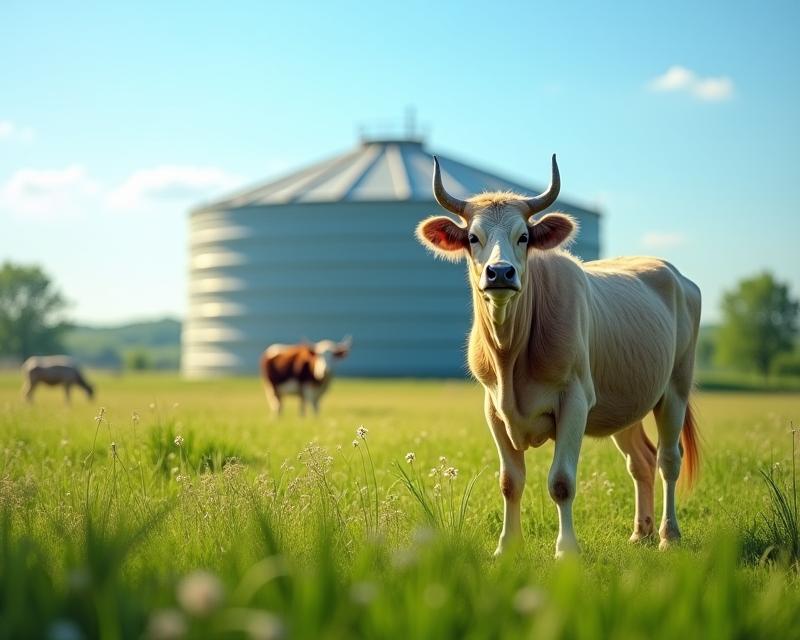Farm Water Storage: Keeping Crops Thriving
Publish in Sustainable Farming el 03/07/2025 17:11
Water Storage Solutions for Farms
Water is the lifeblood of any farm, whether you're growing crops, raising livestock, or maintaining a vibrant garden. Reliable access to water is crucial for a successful harvest and the health of your animals. But what happens when rainfall isn't enough, or droughts hit? That's where effective water storage solutions come into play. Let's explore some options to ensure you're prepared for any weather condition.

Rainwater Harvesting: A Natural Solution
One of the simplest and most sustainable ways to store water is through rainwater harvesting. This involves collecting rainwater from rooftops and other surfaces and storing it in tanks or cisterns. It's a fantastic way to reduce your reliance on municipal water sources and lower your water bills. Rainwater is naturally soft and free of chlorine, making it ideal for irrigation and livestock. The size of your rainwater harvesting system will depend on your roof area, average rainfall, and water needs. Consider factors like gutter size, filtration systems (to remove debris), and tank capacity when planning your system.
Types of Water Storage Tanks
There's a wide variety of water storage tanks available, each with its own pros and cons.
Plastic tanks are lightweight, affordable, and easy to install. They're a great option for smaller farms and gardens.
Metal tanks are more durable and can hold larger volumes of water, making them suitable for larger agricultural operations.
Concrete tanks are incredibly durable and long-lasting, but they are also the most expensive option.
Above-ground tanks are easier to access for maintenance, while underground tanks help keep water cooler and protected from freezing temperatures. Think about your budget, space constraints, and water volume requirements when choosing a tank type.
Beyond Tanks: Other Storage Options
Besides traditional tanks, consider other storage options like ponds and reservoirs. Ponds can be a beautiful addition to your farm and can provide water for irrigation and livestock. However, they require careful management to prevent algae growth and ensure water quality. Reservoirs are larger, more controlled water bodies that can store significant amounts of water for long-term use. No matter which option you choose, regular maintenance is essential to prevent leaks, algae buildup, and other problems. Investing in a reliable water storage system is an investment in the future of your farm, ensuring its resilience and productivity for years to come.
Water Conservation is Key
While storage is important, remember that conservation is equally vital. Implement efficient irrigation techniques like drip irrigation to minimize water waste. Mulch around plants to retain moisture in the soil. Regularly check for leaks in your system. By combining effective storage with smart water management practices, you can create a sustainable water supply for your farm and contribute to a healthier environment.





